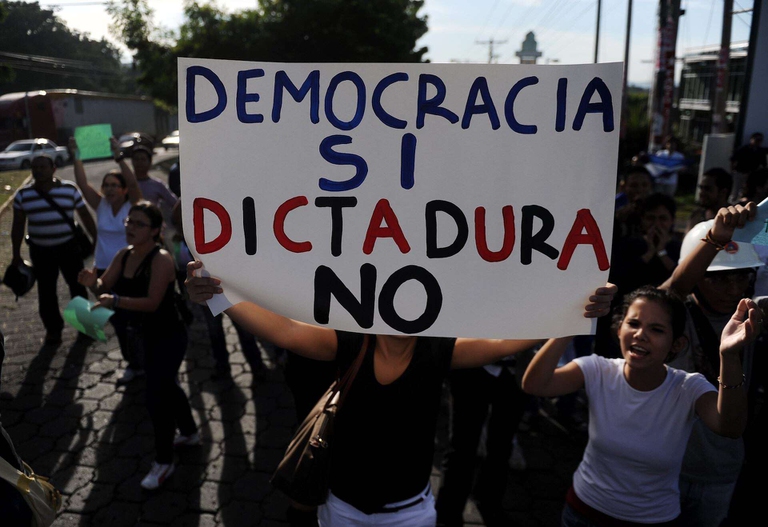https://www.lifegate.it/nicaragua-ong
- |
- Daniel Ortega carries out the largest attack on NGOs ever recorded in Nicaragua.
- The number of organizations dismantled in recent years has risen to 5,100.
The government of Nicaragua has accomplished what for all intents and purposes appears to be the case a further step towards the repression of opponents of Daniel Ortega's regime, ordering the closure of 1,500 non-governmental organizations (NGOs).This measure brings the total number of NGOs dismantled to over 5,000.

Uninterrupted repression since 2018
The crackdown against NGOs began in 2018, when the government he suffocated with violence the anti-government protests aimed at Daniel Ortega and organized by students.For Ortega, the riots represented an attempted coup d'état orchestrated by the United States with the complicity of religious sectors.On that occasion, more than 300 people lost their lives during the brutal repression of the demonstrations, according to United Nations estimates.
Today, the formal accusations made against NGOs concern the failure to declare income, but for many external observers it is just a pretext to dismantle every form of opposition.The organizations affected include the Nicaraguan Red Cross and various Catholic charities, many of which have been operating in the country for years with the aim of providing assistance to those most in need.The assets of closed NGOs will be seized, depriving civil society of vital resources.
Unprecedented squeeze
The recent announcement by the Managua government is significant the largest attack on NGOs ever recorded in Nicaragua, with a total of over 5,100 organizations dismantled in recent years.The crackdown tightened further last week with the approval of a new rule that obliges NGOs to operate exclusively in collaboration with state bodies, making it virtually impossible for them to work independently.In addition to charitable associations, Rotarian clubs, sports associations, groups of small traders and Catholic radio stations have also ended up in the government's sights.
Last year, the government had expelled over 300 politicians, journalists, intellectuals and activists, accused of treason.By the end of 2023, around 30 clerics were imprisoned and subsequently expelled from the country and sent back to the Vatican.Freedom of the press is also in danger:At least 263 journalists have been forced to leave Nicaragua since the crackdown began.
After taking part in the Sandinista revolution, Ortega led the country as head of the junta from 1979 and then as president from 1985.After losing the elections in 1990, he returned to the role of president of Nicaragua in 2007, the year in which repealed presidential term limits.Since then, Ortega has held full control of all branches of state.Under his regime, Nicaragua has become an increasingly isolated country and subject to international sanctions, particularly from the United States and the European Union.
Also the Venezuela, one of Ortega's few remaining allies, passed an anti-NGO law last week that critics say will be used to crack down on dissidents of President Nicolas Maduro.This marks a disturbing parallel between the two countries:the Inter-American Commission on Human Rights recently called for an end to the repression and the immediate release of all unjustly imprisoned detainees.
